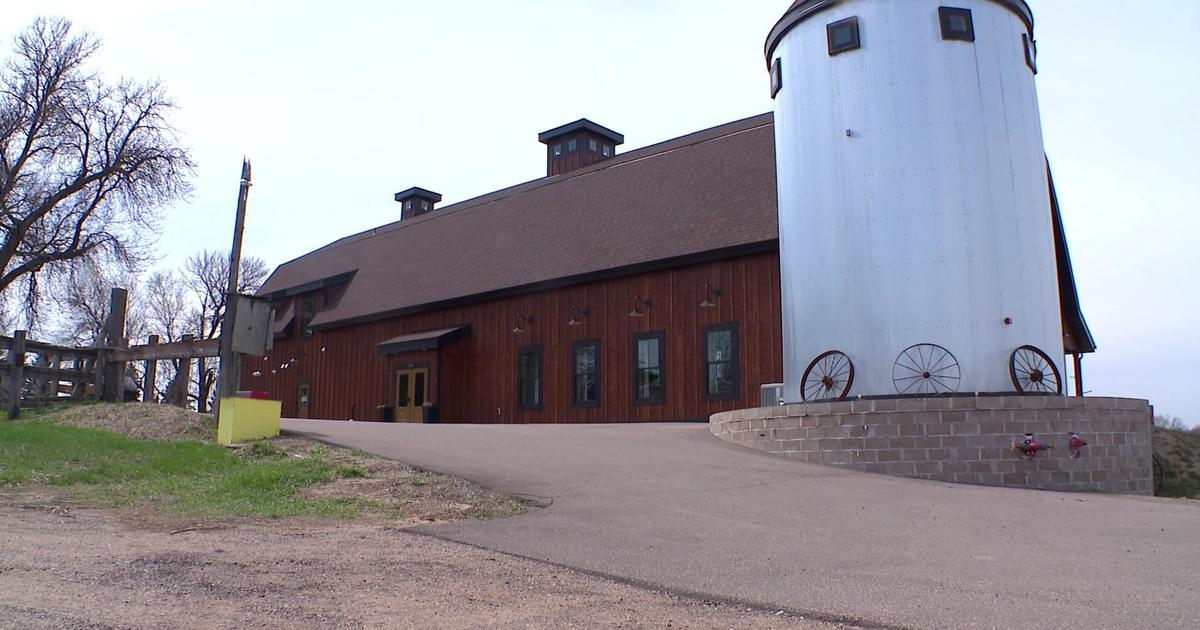Exercise A Lot? You Could Be At Risk For Rhabdomyolysis
MINNEAPOLIS (WCCO) -- We exercise for many reasons: To maintain a healthy weight, lower the risk for disease and to improve our mental health.
But across the country, some people are heading to emergency rooms because they've pushed themselves too hard during workouts.
"They push through the pain, they keep pushing and pushing and pushing to the point where they just tear their muscles apart," Dr. Jonathan Finnoff with the Mayo Clinic said.
It's a condition called Rhabdomyolysis. It happens when high-intensity movements cause muscles to tear so much, they release toxins into the bloodstream. WCCO's Angela Davis shows us how the condition typically occurs, and what can be done to prevent it.
Burn calories. Build muscle. Spin, lift and run. The message resonates with people who want to be fit. But push too hard and some folks could be at risk of a rare, life-threatening condition.
"Rhabdomyolysis is when your muscle cells break down and they release their enzymes and electrolytes into the bloodstream," Dr. Finnoff said.
Dr. Finnoff is the medical director at Mayo Clinic Sports Medicine Center in Minneapolis. He says the main symptom is excruciating pain.
"If you are pushing way beyond what your body is telling you you should be doing, then you can break down the muscles too much and then it becomes a serious medical condition," Dr. Finnoff said.
He says Rhabdomyolysis can happen when someone is exercising and tries something they are unaccustomed to doing, like an extreme number of squats.
"So if you normally do some squats but then one day you do lighter weights and then you do 100 squats in a short period of time, that can break down your muscles so much that it causes rhabdomyolysis," Dr. Finnoff said.
Or too many repetitions when lifting weights.
"As you come up the muscle is shortening. As you lower down the muscle is lengthening, and that will cause significant muscle damage," Dr. Finnoff said.
Another risk factor: Exercising in the heat and getting dehydrated. Runners need to be cautious when they are sprinting or participating in marathons.
And then there's spin class. A study recently published in the American Journal of Medicine found that newcomers to spin classes are at a high risk of developing rhabdomyolysis.
"You are using your hips and quads and hamstrings in that movement. Those are really big muscle groups. If you are doing a lot of work in a way your body is not prepared for, with those big muscles, you can do a lot of muscle damage and end up in a situation where you are susceptible to something like rhabdo," personal trainer Mix Lipset said.
Max Lipset is a personal trainer and a high school soccer coach. He's also the owner of the Power House at Highland in St. Paul, a gym where strength training classes are very popular.
He says it's important to ease into any type of workout that's new to you.
"Give yourself some time to adapt. Any time you start a form of exercise, there is going to be an adaptation phase where your body is getting used to using those muscles that way," Lipset said.
Doctors say it's normal to be sore after exercising. It's not normal to have severe muscle pain accompanied by dark urine.
"They notice as they are urinating, their urine is a darker color. That is part of this muscle breakdown," Dr. Finnoff said.
Doctors treat rhabdo by giving patients lots of fluids to help flush the kidneys. If left untreated, the condition can cause kidney damage, even failure.
Dr. Finnoff says fear of injury shouldn't stop people from working out.
"Exercise is quite safe and it's healthy. The things that kill people are heart disease, diabetes, strokes. Exercise treats those, prevents those," Dr. Finnoff said. "You are way more likely to die by not exercising, than by exercising."
People who take certain medications and supplements are at a higher risk of developing rhabdo, as are people who have sickle cell trait. Researchers at the Mayo Clinic are studying how often the condition occurs here in Minnesota.



